There’s not one specific cure-all diet for eczema, but it helps to keep track of what you eat and when you experience symptoms
Eczema flares can pop up out of nowhere. If you’re wondering whether the foods and drinks you consume play a role in this chronic inflammatory skin condition, you’re not alone.
Advertisement
Cleveland Clinic is a non-profit academic medical center. Advertising on our site helps support our mission. We do not endorse non-Cleveland Clinic products or services. Policy
Family medicine specialist Saadia Hussain, MD, explains how your diet can affect eczema and what changes you can make to help reduce the severity of your symptoms.
At its core, eczema causes your skin to break out in red, itchy patches because of inflammation. And foods that increase inflammation — or foods you’re allergic to — can sometimes trigger or worsen eczema flares.
“Some people have a specific intolerance or allergy to something in particular, like gluten, and that can cause eczema outbreaks,” says Dr. Hussain. “In other cases, it may be something your body doesn’t tolerate well, even without a true allergy.”
Foods that trigger eczema vary from person to person, so it helps to:
Advertisement
Dr. Hussain doesn’t recommend doing an elimination diet unless it’s prescribed by your healthcare provider. That’s because eliminating foods unnecessarily can lead to nutritional deficiencies and make it harder to identify true triggers.
“Generally, we don’t recommend elimination diets, especially in kids,” she notes.
Instead, Dr. Hussain stresses that, for most people, pairing a well-balanced diet with regular exercise is always one of the best solutions you can take to improving your overall health.
“If you try to do that, and make it a part of your lifestyle, it’s going to help you with every disease, including eczema, heart disease and diabetes,” she continues. “Our bodies weren’t built to be sedentary, and our bodies weren’t built to put all these processed foods into them.”
It can be difficult to dig into which specific foods trigger or help eczema symptoms because everyone has different sensitivities. So, the same food that could help one person might hurt another if they’re allergic to it.
That said, Dr. Hussain says it’s generally safe to eat healthy by following a well-rounded nutritional plan that may include:
With eczema, you want to avoid foods that cause inflammation or worsen your symptoms. Try to limit or avoid:
“If you’re eating healthy, you’re trying to stick to something that doesn’t have preservatives, isn’t manufactured and isn’t packaged,” says Dr. Hussain. “When you go to the grocery store, stick to the outside edges. Head for fruits and vegetables, hit the dairy section, and then the meats and poultry before you’re out the door.”
As everyone’s triggers are different, there isn’t one specific eczema diet that works for everyone. Finding out what works for you can take some trial and error. But in general, some healthy diets are already set up to help reduce inflammation and keep you healthy and strong in many different ways.
“Anything with anti-inflammatory properties is good for most inflammatory skin conditions, including eczema and psoriasis,” says Dr. Hussain.
Anti-inflammatory diets limit:
They mainly emphasize vegetables, lean proteins and fish, while providing several benefits related to clearer skin, weight management and more.
Advertisement
The Mediterranean diet is one of the most common anti-inflammatory diets, as it uses lots of veggies, whole grains, legumes, fish and olive oil.
“It’s more plant-based,” she shares. “It’s got a lot of fish and nuts, which is where you’re getting your protein from.”
Dr. Hussain says healthcare providers will sometimes recommend a plant-based diet to limit foods that contain nickel, cobalt or chromium if you have dyshidrotic eczema, as it can be triggered by those minerals.
Dyshidrotic eczema is a type of eczema that often affects the hands. It can be triggered by contact allergens, metals or irritants.
“Gluten can sometimes make things worse, especially if you have an intolerance to it,” notes Dr. Hussain. “Sometimes, just doing a gluten-free diet, you might notice that your skin or your chronic GI condition gets better.”
Bottom line? While there isn’t a specific “eczema diet,” understanding your triggers, getting a little exercise, adopting a healthy eating style and coordinating with your healthcare provider can help you manage this chronic skin condition.
Advertisement
Learn more about our editorial process.
Advertisement
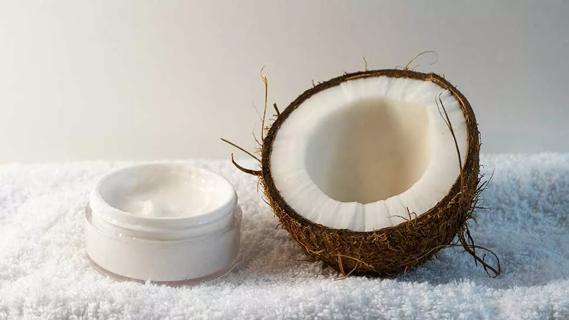
Colloidal oatmeal, petroleum jelly and other around-the-home products can help provide needed relief
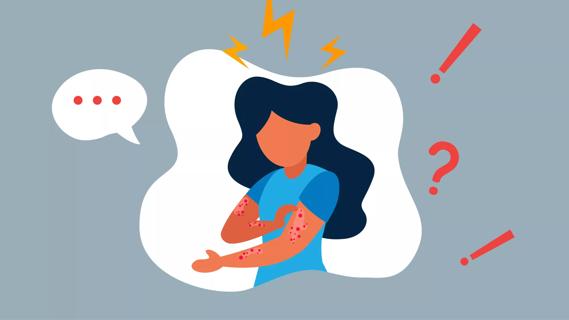
Your body’s natural response to stress can lead to painful skin irritation
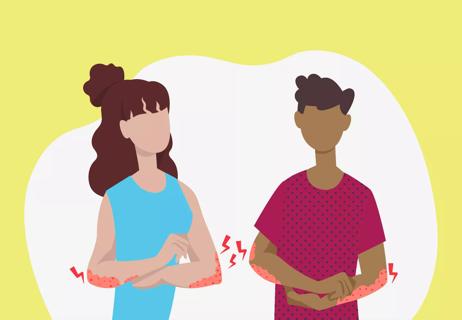
From hyperactive immune response to disordered nerve connections, the itch is real

Eczema triggers are different for everyone, but there are some common ways to manage and prevent flare-ups

Hot or cold, your eczema can have flare-ups during multiple times of the year
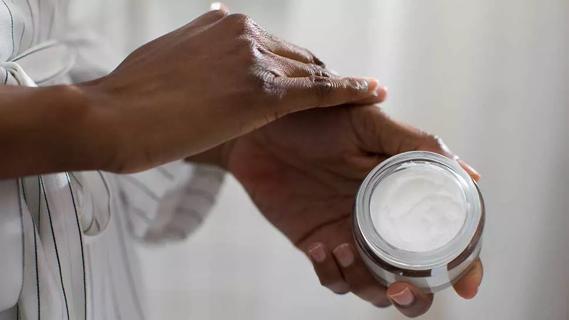
Keep your showers short and lukewarm, and moisturize promptly after with a cream containing ceramides
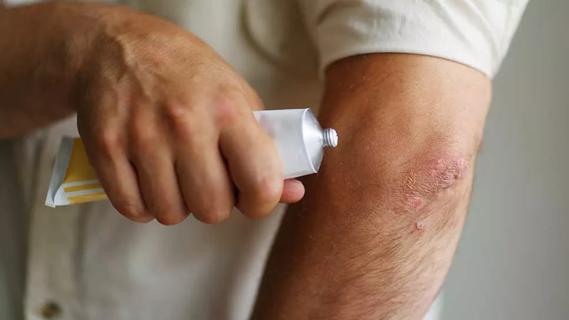
Steroids, self-injections and medications can be game changers
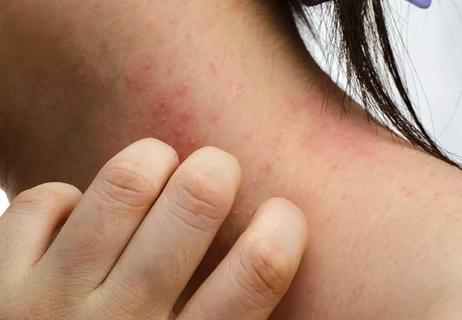
Changing your wardrobe or environment won’t eliminate eczema, but it can help reduce flares

Wearing a scarf, adjusting your outdoor activities and following your asthma treatment plan can help limit breathing problems

Your diet in the weeks, days and hours ahead of your race can power you to the finish line

When someone guilt trips you, they’re using emotionally manipulative behavior to try to get you to act a certain way